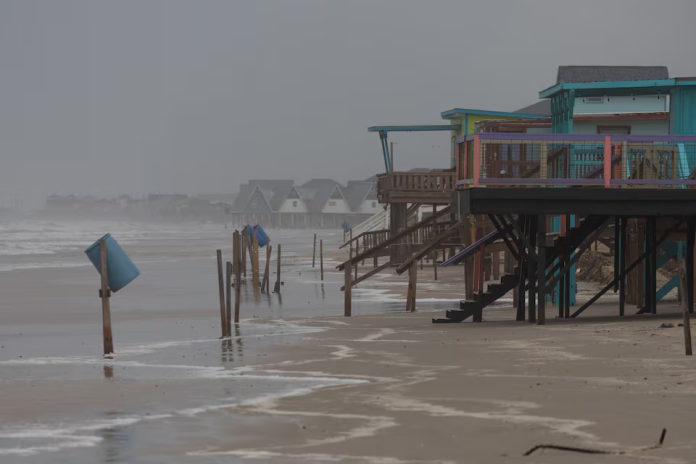Hurricane Beryl grew stronger as it approached the Texas coast, leading to the closure of major oil ports, flight cancellations, and warnings that it would be a deadly storm, according to Reuters.
According to the US National Hurricane Centre (NHC), the storm could be deadly for affected communities. Beryl, the earliest category 5 hurricane on record, swept through Jamaica, Grenada, St Vincent, and the Grenadines last week.
Additional strengthening is expected before landfall on the Texas coast.
It reportedly destroyed buildings and power lines, killing at least 11 people.
The storm weakened after a deadly destructive track across the Caribbean Sea, but grew into a category 1 hurricane as it crossed the warm waters of the Gulf of Mexico. By the time it makes landfall near Houston on Monday, it could be a category 2 storm.
On Sunday, Acting Governor Patrick declared 120 counties disaster areas ahead of the storm and warned that Beryl “will be a deadly storm for people who are directly in that path.”
School systems, including the state’s largest in Houston, announced they would close as the hurricane approached. Airlines cancelled hundreds of flights and officials ordered evacuations in coastal towns. The closure of major oil shipping ports around Corpus Christi, Galveston, and Houston ahead of the hurricane could disrupt crude oil exports, shipments to refineries, and motor fuel from refineries.
Much of the oil and gas production offshore in the northern Gulf is east of Beryl’s predicted path. Some oil producers, including Shell and Chevron, evacuated personnel from their offshore production platforms in the Gulf of Mexico before the storm.
However, Citgo Petroleum Corp stated that it planned to keep operations at its Corpus Christi refinery at minimum production levels while the storm approached the coast. Gibson Energy, operating a major oil terminal in Corpus Christi, said operations were ongoing, but it would take further steps depending on the forecast.
